Silver Wordsmith: An author's journey |
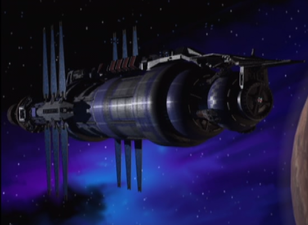 I can't count the number of times I drew this, even to the point of planning a Minecraft build for it I can't count the number of times I drew this, even to the point of planning a Minecraft build for it Any day now, I’ll finish draft 4 of Wake the Drowned, and when I do, I will inundate you with useless statistics and maybe some marginally helpful editing and novel planning tips along the way, but until that happens, I want to talk about inspiration. For the writers in the audience, we all have an author or work that at one point has made us go “Wow, this is the thing I want to create. I want my writing to make someone feel like this makes me feel right now.” For me, one of those works, and probably the earliest one I can remember, is J. Michael Straczynski’s science-fiction series, Babylon 5, which I have previously mentioned on multiple occasions as a great inspiration. Not sure how many of you folks will remember Babylon 5 but it ran in the 90s on the Prime Time Entertainment Network and then TNT for its final season and was the original (and superior) cousin of Star Trek: Deep Space Nine. The show followed the crew of the space station Babylon 5, built by humans to be a hub of diplomacy and understanding between different species, as they struggled with their internal politics and threats from ancient races. Very importantly, it was one of the shows that found both syndication and a fan following in 90s Russia, where I had grown up, and because off its airtime, served as a forbidden fruit. It was on after my bedtime, which was extended to cover the show only on Fridays, so the other four days of the week I had to piece the show together by sneaking out of bed and standing quietly in the doorway, bolting every time there was a commercial break knowing that that’s when I was apt to get caught. My parents later claimed they mostly knew about this but I still like to think I was pretty stealthy. 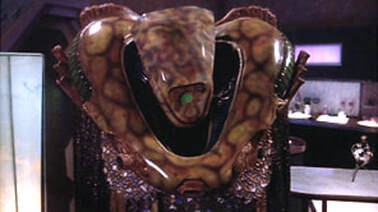 Kosh remains for me the epitome of cool alien design, and this is only his encounter suit Kosh remains for me the epitome of cool alien design, and this is only his encounter suit What struck me about B5, aside from the cool aliens which would tickle the imagination of any young boy who was into Star Wars, was that it was my first exposure to long-form storytelling. Babylon 5 remains fairly unique in its approach to its story – it started off with a pre-planned five-season story arc, and it was given a chance to conclude its full five-season arc, albeit with some shuffling in the final two seasons due to a threat of cancellation. My little child mind was absolutely boggled by this as stories and themes were interwoven, secrets had satisfying resolutions, and actions had consequences reaching into seasons ahead. It was the first work of fiction that taught me that characters can come in shades of gray, that as one enemy redeems himself the other can face a cruel downfall, their fates seeming both inevitable and completely avoidable. It showed me that humour can cohabitate with tragedy, and strength with vulnerability, and that somewhere deep within me my own stories were itching to get out. The reason B5 was on my mind as I set to write this post is twofold. Firstly, I have been diligently working on Chapters 2 and 3 of The Bloodlet Sun (despite what the general lack of updates would otherwise suggest), my own long-form mostly pre-planned sci-fi series that I’m sharing here on this blog. As I’m putting together these early chapters and planning for the future of the series, I can’t help but seek inspiration from B5 and I have spotted some unintentional minor similarities that make me question whether I have an original bone in my body. The other reason this has been on my mind is because on Tuesday, through the magic of the internet, I had a chance to have a brief interaction with the creator of B5 himself. J. Michael Straczynski did an AMA on the /r/books subreddit and I was lucky enough to catch the beginning and fire off my comment. I told him the little tidbit about watching it past my bedtime and what an influence he was. The ever-humble Straczynski advised me to never let “some other show” influence me as a writer. In general, I take his meaning. Those previously mentioned similarities notwithstanding, I want my work to be original, but what are we without the giants whose shoulders we stand on? Straczynski is one of the giants for me. While I want Drops to have a unique voice, to breathe life into a story and into characters that are entirely my own, I can’t help but see my work through the lens of works that have inspired me. I want to at least come close to bringing to the world the same complexity, the character development and engaging story that Straczynski brought me when I was a kid. So with that said, I hope you all get a chance to experience the brilliance that is Babylon 5. I know I’m already looking to my next rewatch, and to bringing you even a smidgen of the same powerful storytelling.
1 Comment
In today’s post, I wanted to continue the theme of last week’s entry, and talk a bit about another aspect of self-care: boredom. Firstly, I want to recognize that I’m not breaking any new ground here. Though our aversion to boredom may have something to do with being unable to block out the unpleasant thoughts and feelings that attempt to constantly bombard us, it’s well-accepted that that same lack of distractions can also spur creativity. What I did want to talk about though was my own personal recent experience with the relationship between boredom and creativity.
I’m generally fairly inseparable from my phone. Not to the point where I might be constantly texting all day, but at the height of Pokemon Go I did fall down the stairs once, and the less said about that, the better. Waiting rooms, walks to and from the bus stop, and washroom breaks have historically been accompanied by either my Reddit feed, or whatever flavor-of-the-month mobile game I’m playing at the time. Too many hours have been spent playing Disney Emoji Blitz, as my Disney obsession is well-documented. I am very well aware of the fact that the hours spent on my phone are, by and large, “wasted time”, in the sense that while they’re entertaining (and I think time spent enjoying yourself is not technically wasted time) there are no long-term benefits derived from it whatsoever. It’s similar to eating cookies – it’s not “wasted” food but a lot of the time you should probably eat something other than a cookie. Same with mobile games; I acknowledge that I can be doing something more useful but boredom is unpleasant and games are just so darn fun. There, I said it. I know some of you are probably more disciplined than me, but for many, this should sound familiar. Over the last couple of weeks I found myself in a lull between games – nothing spoke to me enough that it made micromanaging inventories and daily tasks worth it. Of course, there were no shortage of Reddit updates to get into as that front page is theoretically infinite, so I will give myself some credit for consciously choosing not to pull out my phone and actually enjoy the scenery of the beautiful campus I work on. This will sound stupid in both how obvious and cheesy it is, but boy does it feel good to lift your head and just walk for a change. It helps that it’s summer and therefore not raining here every day to the point where you’d sooner drown yourself in the nearest puddle. What I found though, is that even if we only took the walking part of my commute, which is about ten minutes each way from the bus loop to my office, I had twenty extra minutes in my day to allow my mind to wander. And, being the kind of mind that I have, it invariably wandered to my writing. It’s no coincidence that it was last week that I finally finished the first draft of Chapter 2 of The Bloodlet Sun, which had been slow going since spring. The first sketches of Chapter 3 are already populating my Moleskine notebook, along with notes for the current draft of Wake the Drowned, and bits of dialogue for the bedtime story I’ve been telling my kids since January. In fact, that same notebook that I’ve had since December and was only half-full a month ago is now almost complete. I don’t remember the last time I had such a burst of creativity on multiple projects. I’ve even managed to take this week to design a flag for the Human Interstellar Dominion in The Bloodlet Sun, just because my brain happened to have had some extra capacity to work on it. I have gone at length about all the different ways you can deal with writer’s block and one of the obvious solutions was staring right in the face the whole time … literally. That said, I’m not going to pretend that I will reduce all my phone use to a minimum, or that I won’t at some point, for however long, slip into another game that gets me with its dopamine microdosing. Nor do I want to make the argument that writers that do shun technology to that extent necessarily make better writers. Quite the contrary, I think a writer impoverishes themselves by deliberately shunning anything that is enjoyed by a large number of people. I don’t believe in the artist as a creature unto themselves and I strive to see how people tick. What I do want to acknowledge is the benefit of boredom. Even for a few minutes a day. Make an effort to spend time away from your desk, to let your brain breathe without being subjected to the myriad of stimulations tossed at it like slop to hogs. Take a moment to listen to what your brain has to say, and you may be pleasantly surprised.
In May, the family and I had taken a two-week vacation together, our first such break after we’ve had kids, so about six years since the last one. We were on Oahu in Hawaii, in a hotel with Wi-Fi, so we weren’t exactly off the grid, but because of the hectic days, the relaxed evenings, and a couple of thousand miles separating me from my work computer, I generally stayed off the internet.
This felt unsettling at first, like I was missing out on something big that everyone was a part of, but as the weeks progressed, the silence that filled the space of constant news, and Reddit and Twitter updates felt refreshing. It’s as if a stormy sea had calmed and I could now relax on the gently rolling waves. And this is when it hit me: news was slowly poisoning me. There’s been some general consensus that tuning into the news cycle is closely associated with feelings of stress and anxiety, and even general fatigue and sleep deprivation, and this seems like a fairly common sense conclusion. Yet it’s one thing to nod along to an intuitive concept, and another thing entirely to experience it as acutely as I had towards the end of my vacation. I can’t emphasize enough the benefits of vacation, especially where you can leave work behind, or when you get to spend precious time with your family. In this case, there was also the added benefit of allowing myself to detox just enough to actually feel the difference from not exposing myself to the news on a consistent basis. Imagine that every time you read a bit of negative news, you activate your normal stress responses. Now take a moment to consider how many snippets of negative media coverage you consume a day, and think about how that puts your body in a near-constant state of stress. Think that’s doing you any good? So why do we do it then? Personally, I want to refer again to that feeling of unease; the sense that I’m being excluded from a very large and important conversation. I enjoying being an informed individual. So many things are happening in the world that I can’t submit myself to ignorance, whether it be ignorance of international politics or pop culture. “Ignorance is bliss” is simply not an option, and I’m sure many others feel the same way too; that “ignorance” is the salient point here, and “bliss” is just appended there tongue-in-cheek. Maybe it’s actually the reverse. Firstly, I took a critical look at the “ignorance” I was actually risking subjecting myself to. It’s useful for me to know that there is a trade war between us and our closest neighbour, and that it involves steel and dairy and other products. But do I need to consume every article on the matter? Do I need to know every product, the actual numbers, what the trade ministers have said, and what Joe and Jane Doe think about the situation in the comments section? I know the world is filled with noxious politicians, but what am I doing to myself by perusing all their vile tweets and comments, every ignorant decision, and every racist or sexist bleat of support in their favour? And then there’s the ceaseless social media debates between not the most level-headed individuals on either side. Tell me, how often do you engage in, or witness, vitriolic partisan discussion in real life versus online? Social media is particularly effective at polarizing discussions and probably helps us hold unwarranted beliefs that we’re surrounded by people with such different thinking that they might as well be members of a different species. This all falls as sediment in our subconscious minds, and we carry the weight with us through our waking and sleeping hours. There is an epidemic of stress-inducing media coverage: news articles about the latest evidence supporting climate change, or the recent erosions of democracy, refugees crises, natural disasters, housing prices, local murders. Some have compared news to being the sugar of the mind: easy to digest, mildly addictive, and absolutely horrible for you. I think what we’re experiencing is the inevitable fallout of the Information Revolution. In the same way that the byproduct of the Industrial Revolution choked cities in black smog, so does the Information Revolution choke our minds with information that slowly poisons us. How many articles about the negative mental health effects of social media do we need before we accept that this bombardment has stark similarities with the ubiquitous smog and microplastics that we’ve accepted as being immensely harmful to us? Now let’s take a moment to talk about the “bliss” part of the “ignorance is bliss” adage. What I felt towards the end of that two-week sabbatical from news and social media was similar to the lifting of a weight. Before leaving town, I was going through one of my lengthy episodes of negative affect. It dissipated sometime during my break and hasn’t reared its ugly head since. Of course, the conclusions I can make from this are far from scientific – there’s no way to separate this particular aspect of my vacation from any of its other benefits. That said, the clarity I experienced is difficult to ascribe to anything else. By plugging into the world on a regular basis, I allowed it to take up more of my headspace than my immediate surroundings. By constantly worrying about the thoughts and opinions of others, strangers the likes of which I would unlikely ever encounter in real life, I allowed them to dominate my thinking instead of people with who I interact on a daily or even occasional basis. The great conversation I was worried about missing out on had actually been squeezing me out of the present moment, and the moment I embraced the present, my mood, my energy levels, my joie de vivre had also seemed to reach levels I hadn’t felt in years. I’m not advocating shutting our minds off to the tumult entirely. Disengaging completely from issues that don’t immediately affect us only serves to exacerbate the problems that don’t go away just because we stopped hearing about them. But perhaps it would be smarter to take a more measured approach: to sip the news rather than open our gullets to the deluge and quickly drown. This is why ever since I came back from our trip, I’ve reduced my news consumption without unplugging completely. For many articles now, I read the first few paragraphs to get the general gist, without weighing myself down with details. Other articles, which just depict heavy news, I contend with just reading the headlines. There’s an immense amount of tragedy in the world. And while we shouldn’t ignore the plight of others, what mind can withstand the weight of all their unfathomable human suffering? The filter I actively try to apply to selecting what I read is this: 1) what benefit is this information to me, and 2) how will this help me create a more positive effect on the world. You’d be surprised at the volume of information you consume that does pretty poorly on these two criteria. And then that leaves the comment sections, which if you’re going to extend the pollution metaphor, is the equivalent of sucking on a car’s exhaust pipe, so I’ve tried to shut my eyes to these almost entirely. Again, I’m not recommending the extreme opposite here – surrounding yourself only with like-minded individuals who won’t trouble your world view. What I want though, is to interact with real people, who are far less likely to resort to childish name-calling or death threats during a disagreement. The internet has done incredible things in terms of connecting us and letting individuals reach into the far corners of the world. But if we reach too far, we risk getting pulled apart at the centre and losing the core of who we are. Pull out the IV drip of poisonous news, and enjoy breathing easier. The concept of a promise takes on a completely different character after you’ve had kids, especially kids with a sharp memory and a sense of justice. If you say they’ll get to watch “Moana” tomorrow, they better be signing along to “How Far I’ll Go” or you will be summoned in front of a tribunal to explain your actions. There are tiny persons now who believe in the inherent goodness of the world and the value of your word has a heightened sense of importance. It’s an interesting sensation to have a magnifying glass lifted up to your words, like little editors following you around ready to be somehow disappointed.
All of that to say that the one person to whom I make promises that I still happily break is myself. I promise to go to bed by ten o’clock today. Lies. I promise if I sleep-in an hour tomorrow I’ll have twice as many morning runs next week. Lies. I promise that when I go on vacation I will set aside some time to write and make a couple of blog updates. As I’m sure you’ve noticed, that was a lie as well, and one I tell myself every time I go away somewhere. And here’s where the looming figure of imposter syndrome stands behind me and reads over my shoulder. If you were a real writer, would you really be able to stay away from writing, it asks. If it was truly your passion, wouldn’t you find the time, conjure it out of thin air as if your life depended it? Whatever my self-doubt has to say about being a writer, I know that being one primarily involves being a person. And as a person, sometimes I need to be kind to myself and do what I need to relax without feeling guilty about all the other things I might otherwise be doing. And you know what? I highly recommend it. This was our first chance to take the kids on a getaway beach vacation. They’ve been to Disneyland twice now, but that in itself is a unique experience. Realistically, you can only spend a few days at Disneyland and you’re well-prepared that it’s all going to be a hectic blur. We’re fine with that, and we enjoyed those two trips immensely. Two weeks in Hawaii though is an entirely different experience. Even though the carefree days of lounging with a book on the beach for hours, drifting in and out of naps, are long gone, and by the end of the day both me and my wife were left thoroughly exhausted, we still felt relaxed, rested and happy. It’s just one of the many paradoxes of parenting I suppose. In a recent entry, I had talked a bit about how my day job is relatively high-demanding and often moves into my headspace when I’m not at work. Spending time with my family every day, heading to the pool or to the beach or simply eating meals together managed to clear a bit of that log jam. It’s unbelievable how much routine can clog up the pores of your mind and restrict its breathing. But if the issue is work (or other parts of daily repetitions that you don’t necessarily enjoy, like the morning commute or chores), then why did my writing get swept away in the same stroke? Don’t I enjoy that? Now suddenly I have arrived at one of the questions many writers, and artists in general, ask: do I enjoy this? The answer is of course, a resounding “I do”, but do I enjoy every aspect of it? Do I enjoy writer’s block, against which I’ve rallied in multiple entries? Or perhaps the rigors of editing? Not so much. So maybe it’s a good idea to step away from those as well, to let the enjoyment of my art rise to the top? Perhaps I’m making it sound like this was a result of conscious decisions. Far from it. Truth be told it just never entered my mind that I should interrupt my “doing nothing”. That said, those of you that have been reading this blog know that I’m an advocate of the proposition that writing words down is but the tip of the iceberg of the act of “writing”. Similarly in this case, while I may not have written new words I have lived, I have experienced, I reflected and recharged and came out of it a better writer. Being away gave me what I sorely needed at the time. That is not to say that a part of me isn’t glad to be back. A vacation that lasts forever just becomes “life” and how are you supposed to take a vacation from that? It’s going to take me a couple of weeks to blow all of the cobwebs off my writing but I’m happy to jump into all the projects I have on the go with renewed energy. Hopefully this means getting you that second chapter of The Bloodlet Sun, finishing editing the fourth draft of Wake the Drowned, and completing some half-finished short stories that have been sitting around for more than a year. Now, I know not everyone has the option to go on the kind of getaway that I described. We consider ourselves very fortunate to have these opportunities and I don’t mean to imply that flying somewhere for five hours is the only legitimate way to take a break. Instead, my primary purpose was to come up with an elaborate excuse as to why I hadn’t done any writing in the last three weeks. But seriously, I do believe it’s important to remember to be kind to yourself, to not push yourself to a brink, to give yourself a break when you need it or just when you want it. You don’t cease being a writer if you don’t write. Take a vacation, whether literal or figurative, from anything that might be getting you down. The rest will come. I want to start off by saying that I like my day job, and I’m not just writing that because someone might be watching. I may not love it as much as I would kicking back and writing all day so that I can sell coffee table editions of books of lore for my sci-fi epic and raking in money by the hundreds of thousands, but hey, I can still dream. I really do enjoy it. As much as one can enjoy being a lawyer without marrying the law itself and deriving pure unadulterated joy out of structuring complex securities transactions.
I’ve had a testy relationship with my career, but ever since I landed a gig at a post-secondary institution, gone are the days of wondering why I’m spending ten or twelve hours a day helping mining companies sell hopeless assets or aiding energy companies in potentially harming sensitive marine environments. Now I’m one of the greased wheels that helps an academic institution go round and round. Between the variety of work and being steeped in an environment of learning, this place is pretty great. The nature of my work (and this is a reason why I appreciate a desk job in general) enables me to take a minute or two out of the day to write down an idea, or to a walk to a colleague’s office across campus and brainstorm, or to carve some time during lunch to eat at my desk and write. Overall, I find this job pretty conducive to my life as a writer. Despite keeping me consistently busy and for relatively long hours, I can make it work. But it is a day job; that second-most dreaded adversary of a writer after self-loathing. So it does come with its challenges, and the reason I’ve been prompted to write about it is because the last couple weeks have been particularly brutal. It was so busy at work that I had no time to think about anything else. I barely had enough time to remember how to breathe. Lunches were spent reading emails, the hours stretched somewhat, and the looming threat of an ever-growing to-do list clogged all my creative pores and drained me of that desire to write – the one that helps me pour out several hundred words in just a ten-minute stretch so that I could at least stay consistently productive. By the time I got home, my brain was so drained that I just had enough energy to put the kids to bed and watch Netflix with my wife over dinner. It was one of the few times where I felt that my day job actually clashed with my craft. I don’t count the years spent at the law firm because that job just slowly saps your soul until you get irrationally angry at having to wake up in the morning. The last couple of weeks, where my job completely eclipsed my writing, gave me pangs for that fantasy world where I sit with a hot mug of lapsang souchong as the sun shines into our home office and I’m taking my time reading up on the East India Company as part of my research. And you know what, for some people, that’s their life. They’ve chosen to make it work and they can make it work and I can respect that. I can also respect the shift worker that comes home at 7 in the morning, sleeps, hammers out a page or two in the evening while the world is settling for bed and then off they go to help the world turn while everyone else is sleeping. The bottom line is, they’re all writers. I’ve got a family and a demanding job and I continue to write in the same way as the Creative Writing major who spends more time writing than I do sleeping. Yet it’s not uncommon to see those “75 Habits of Successful Writers that Won’t Guarantee Success but if You Don’t Follow Them, You’re Basically a Fraud” articles treat having a day job as the antithesis of being a “real” writer. You know what makes it really hard to write? Hunger. Not having a roof over your head. The stress of not knowing where your next paycheque comes from. Yes, a skillful writer can turn transform those things into inspiration and a burning fire to produce great writing, but it’s not a necessary ingredient to success. You don’t have to enslave yourself to a different master just to be a good writer; to prove yourselves to those anonymous people to whom you owe absolutely nothing. A job is life experience. A job allows you to meet new interesting people or be alone with your thoughts for hours on end. I’ve advocated several times on this blog that the act of being a writer doesn’t start and end with the addition of words onto a page. It starts when you wake up and it ends when your go to sleep, and in between those two are dreams and nightmares that can be used for sparks of inspiration. So don’t be tempted into being hard on yourself for how you choose to structure your life, there’s no one kiln out which a writer can be forged and there is no shame in choosing any kind of job, whether it be a long-term career or a part time means of making some cash, over fully dedicating yourself to the writing craft. 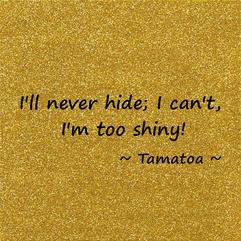 Life motto as provided by Moana and Lin-Manuel Miranda Life motto as provided by Moana and Lin-Manuel Miranda Between writing, my day jobs, and having two small kids, I go out to the movies once in approximately never, but when I do, I always seem to have a lot to say about them. I think the last movie I had seen was Solo and I immediately went here to defend it against the hordes of fans who hate on any post-Disney Star Wars content. By some weird coincidence that only solidifies the suspicion that I’m a studio shill, the most recent movie I watched was Ralph Breaks the Internet: Wreck It Ralph 2; may the person who thought of this unwieldy monstrosity of a title get a hangnail, or something. Any time I watch a Disney film, it’s an event. The previous two that have come out, Moana and Coco, are not only currently sitting as my top 2 favourite animated films of all time, they are both easily in the top 10 favourite movies in general. I think you get the picture. I’ve already previously mentioned that we’re a Disney family but you will eventually learn just how deep this rabbit hole goes. Anyway, back to Ralph Breaks the Internet, or let’s just go with WIR2 for short. Although it was a very special experience in that it was the first movie my youngest has seen in the theatre, and that my four year old kept his Pikachu stuffy in the cupholder of his seat the entire time except for the scary scenes where he would put down his popcorn and clutch that electric mouse like his life depended on it, I would not call the experience magical, at least not in the same way that I could call other recent Disney experiences. As far as the Disney Studios animated films, we’d have to dig back as far as Bolt to find one I enjoyed less than this. Now don’t get me wrong, I still think this is a good film and would recommend watching it. When stacked against some other studios that produce animated films this would be a great movie by their standards. But I started to get used to was that films like Moana, Zootopia and Tangled or Pixar ones like Inside Out and Coco, is that the movie itself had left an imprint. I would walk out of those feeling like the movie was a transformative experience because I knew right away that it would influence my writing, or my outlook on life, or simply contain emotional experiences that I would want to revisit over and over again. But WIR2 contained none of that for me. I could feel something was wrong about twenty minutes in, this discomfort at not being sucked in entirely into the story. In fact, that seemed to be the problem, I was acutely aware that I was being told a story instead of being absorbed by it and taken along for the ride. Granted, I have long feared this movie coming out, not exactly being enticed by trailers or the prospect of a sequel. So maybe some of this initial suspicion was on me, but the feeling never left. Throughout the whole film I felt as though I was being deliberately walked through the elements of the story. Here is their friendship, here is the strain in their friendship, here is the inciting incident, here is a sprinkling of character development. These are of course all legitimate parts to a story but I should not be so aware of them. I shouldn’t have to listen through dialogue such as “your guys’ friendship is like this” or “you’re my friend, so you shouldn’t do this.” It was all so on the nose that towards the climax of the film a character was basically talking to themselves out loud listing all the things about friendship that they learned throughout the movie. So much of this sounded more like placeholder titles for scenes than actual fleshed-out storyboarding by Disney’s usually brilliant writers. I think in part due to this lack of naturalness and authenticity, the movie failed to connect with me on that emotional level. Sure, there were emotional scenes but they never quite got to that next level. I think one of the low moments was supposed to have been Ralph reading a bunch of mean comments about himself on social media, but this is a kids’ movie folks, and you and I have probably had waaaaaay worse said about ourselves at some point in our lives. Compare it to the scene in the first one where Ralph, with his bare hands, destroys Vanellope’s car in order to protect her, but being unable to explain himself while she’s screaming in mental anguish about the betrayal and her lost opportunity. That’s emotional. Reading “ralph stinks” is not. And I feel as though Disney failed to provide their stars with a proper supporting cast. Granted, they avoided a common sequel pitfall in that they didn’t just milk the side characters for the same jokes without any character development, and left Fix-It Felix Jr. and Calhoun on the sidelines for almost the entire movie. But if you’re going to do that, you need someone memorable to replace them with, and sadly, that was lacking. Yesss and Shank were cool characters, but that was pretty much where their merits stopped – neat concept with a slick execution. And no offence to Gal Gadot, I absolutely loved her in Wonder Woman, but I’m not entirely sure that voice acting was the right choice. For folks like John C. Reilly (Ralph), Jack McBrayer (Fix-It Felix) and Jane Lynch (Calhoun), their voices are very distinct, but when they’re playing their characters, I still hear the characters and not the actors behind them. Yet with Gal Gadot, the whole time I was like, oh, there’s Gal Gadot doing a Gal Gadot character. Maybe it’s because the character she was given to bring to life was as two dimensional as the old Fix-It Felix Jr. arcade game, but that’s just how I felt. Again, I feel obligated to pause here and say that I still enjoyed the movie. This post is more just the ramblings of an overly-invested fan. The movie was much better than I thought it might be. Okay, fine, that doesn’t sound like a glowing recommendation, but seriously, I had a lot of fun. The internet jokes are at risk of becoming dated, but in this day and age they weren’t groan or cringe worthy. What a time to be alive when “screaming goat videos are back” is a reference that moviegoers actually get. They heavily-promoted Disney princess reunion had just the right amount of meta and self-aware jokes to be funny, and given the premise of the movie it didn’t feel forced. After all, Vanellope is a princess in a Disney movie and is yet shut out of the club when Merida gets to hang out like one of the crew. The movie took some great characters and moved them forward and actually added to both the world and the story, unlike a lot of sequels. But here I am wanting something more and I’ve convinced myself that I didn’t get it.
So this probably puts me on Mickey’s naughty list, but hopefully I get to keep my fan card. I’ve gotten quite vested in their movies after not having grown up on them, and Moana, which also intersects with another obsession of mine, Lin-Manuel Miranda, is probably one of the most influential pieces of storytelling in my life. So hopefully I’m just making a tempest in a tea cup here, but with the next scheduled movie being Frozen 2, colour me a little apprehensive. I’m in an introspective mood, which spells trouble for both brevity and comprehension, but in any case, I will try to keep this focused. I’ve recently returned from a conference in Toronto, my first visit to the city since my wife and I moved away seven years ago. In Canada, Vancouver has always been home, but we did spend an amazing three years in our largest city while I attended law school at the University of Toronto. So T-Dot, the Big Smoke, Hogtown, or whatever outlandish nickname you want to give it (Centre-of-the-universe, as those outside Toronto are apt to call it), is a second home. I’m no stranger to having second or third homes. I was born in Budapest and spent many summers there, and I grew up in Moscow, so I’m used to leaving behind places that have been dear to me. But this is the first time I’ve come back to a place after such a long time. Everything changes. Whether people or places, change is woven into the fabric of existence. To expect something to preserve itself exactly as you remember it is to deny that someone or someplace a core part of their nature. Even our Vancouver neighbourhood that we moved into after Toronto has undergone a lot of changes since that time. Stores that had been opened for decades had closed, some being replaced by cannabis dispensaries. A grocery store had a condo tower built on top of it. This all happens so gradually that like the proverbial boiling frog, even though you’re kind of aware of the temperature becoming uncomfortable, the change is just too gradual to truly appreciate.  Then you get dropped into Toronto after a seven-year absence, a city that is known for having two seasons – winter and construction, and pick a random intersection in Downtown and scan your surroundings. The skyline is dotted with cranes erecting ever-higher towers, constantly increasing residence stock without ever alleviating the cost of housing. This never ends, once a building is finished, another one pops up somewhere. So it’s a neat feeling coming across a beautiful light-blue skyscraper, and scratching your head trying to figure out what was there before. But if you can’t remember, it no longer matters, it’s left your life, leaving no impact whatsoever except this vague uneasy feeling that change tends to elicit. Then there’s the stuff you do remember being there. Our local neighborhood No Frills store (probably one of the most “no frills”, as the name implies, grocery stores in Canada) was replaced by a much shinier looking FreshCo. And the old menacing 1960s apartment block that rose above it is now another glass condo tower reaching above its neighbours. This little visual gentrification of St. James Town was a bit of a shock in a city that, as I already mentioned, suffers from an ongoing housing crisis. In the eternal struggle between old and new, I also came across a stark example of a Toronto building strategy – incorporating an old façade into a new building. Heck, there’s a building not too far from the Hockey Hall of Fame that is entirely within what is essentially an indoor mall. So here it is, a clock tower of some unknown historical significance that was chosen to withstand the unstoppable march of progress. Our own apartment building was still there. That was welcome news. The window of our first floor corner apartment, where we spent three years sharing 350 square feet was covered by a clothesline of old towels and sheets. Beyond that impenetrable façade, because how creepy would it be to ask for a tour of the old place, was the first real home we made. Now it’s only accessible through photos and memories, but it’s still there, with the familiar cracks and imperfections we made our own. Which is more than I can say for my second home in Toronto – the law school. Despite getting a whole new building clamped onto its side, from a certain angle, the two law school buildings don’t look any different. The iconic façade we put on all our hoodies and T-shirts is still there – the view at the end of my morning walks. And when you first walk inside, it still hits you with that smell – the history that has seeped into the walls of so many repurposed Toronto buildings. 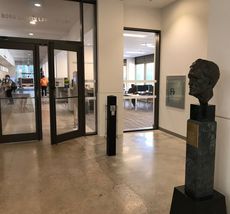 But then when you exist the foyer, you’re in a whole different world. Sure, Bora Laskin’s bust still sits on its pedestal next to the library’s entrance, but the entrance has moved. The copy stations where I’d print out freshly warm essays to hand in is nowhere to be found. The study nooks on the second floor where I’d eat baby carrots and watch episodes of One Piece are no longer there. I tried to track down any of my old classrooms, but had no luck. Either the new layout has completely messed with my sense of direction or it’s all gone. Photos of graduating classes where you’d be able to pick out half the notable judges and federal Liberal politicians of the last half-century have all been hidden away. My law school, the entity that has awarded me my degree, is still there, but the law school that I truly knew is gone. I would never be able to tell my kids that here is where their mom leaned against that stone pillar while she waited for me and got bronchitis in our first week there. Such a tiny little thing, a silly insignificant story that no longer has the aid of having a live location. Like with the apartment, the memory is there, but the physical space is gone. It shouldn’t really be a big deal but it is. In my early thirties it’s finally creeping up on me. The country I spent the first years of my life is gone. The political ideology that raised my parents is almost extinct. Yet this, a remodeling of a law school is what gets to me. It brings to the forefront the power of memories. People, places, and things all go, but they all live a second life in our memories. We are faced with a flood of photographic evidence. Something our grandparents and even our parents didn’t have. It’s so easy to whip out the phone and observe, but it’s a very different feeling from experience. Now, I’m now trying to turn this into a “technology is bad” kind of luddite rant, but I can’t stress enough the need to appreciate the moment. To truly sink into the people and the places we hold dear to us. I know I’m getting philosophical over some pretty basic stuff, but there’s one thing to know something, and there’s another to truly feel it; deep down in your bones kind of feel it. And this, I feel, is something that is one of the goals of my writing: to turn that inward feeling outward. At the end of the day, I want to leave readers with a memory of the story. There’s a bit of disagreement with me and some of my fellow writers. Then again, try to go find an issue all writers agree upon, and we’ll see how long it takes for that task to kill you. So I’m not trying to pass myself off as a unicorn, but I do find that advice that promotes avoiding writing for the market primarily often is distilled into the simply rule of just writing for yourself and forget what anyone else thinks. But this distorted view of “writing for yourself” ignores a fundamental attribute of the storytelling craft – on the one hand you have the story, and on the other you have the telling, that is, the story must be heard in order to be told. I’m not advocating constantly catering to an imaginary audience. A story that pleases everyone is the golden fleece that a writer could sink their ship trying to find. But at the same time, an author that creates a story for the love of the art alone risks ripping the soul right of the work and leaving it a dead and useless thing. Not without some reservation I admit that I find little merit in works that are purposefully created to be difficult to access. I recognize the genius that it takes to put some of these works together and won’t pretend that somehow pop literature is the superior medium. Rather, I find them to be an art unto themselves, a separate category of literature that has moved so far away from the intent of storytelling that it should find itself in its own realm. It’s one of the reasons that you will never find me criticizing Dan Brown or E.L. James as someone who “should not be read”. Most anything can and should be read because it gets people reading, feeling, learning. The reader is at the heart of writing and when an author writers to exclude as large of a readership as possible, the work loses the heart. I can’t write without an audience in mind, and I admit the dangers are there. Occasionally I have to ignore the siren’s call of pleasing an imaginary reader at the expense of the story’s integrity, and sometimes I find myself sailing through the narrow straits between Scylla and Charybdis, wondering if I’m straying from the path the work needs to take in order to please someone who’s not there. It’s an approach not without flaws but it’s one that helps me sustain my writing. For Wake the Drowned, my first novel that I’m currently working on, I feel that the driving force has two parts to it. On the one hand, I’m writing it for myself – I need Charlie’s story to be told. But on the other hand, I also need Charlie’s story to be heard. The book is written as much for me as it is for the people who could either relate to Charlie, or learn something from Charlie’s experience. It is because of this belief that every story must be heard that I haven’t been able to write in silence and sought out others to read my work. Sometimes these people are referred to as “beta readers”, though I’ve often found the term to be much too informal. To me, these are the friends and family who helped keep my writing; my indispensable ones. In an earlier entry I’ve dragged readers through the broken glass field that was my early juvenile writing. Since my elementary school stories involved my friends and I kicking ass and taking names, their interest wasn’t that hard to grab. It was all a bit of good fun, until my one friend decided to make fun of the fact that in the story I married myself off to one of our classmates, so I sent him flying down from the tall mound of snow that our groundskeeper built on the side of the parking lot. I believe I mentioned before something about not exactly being a perfect child. Sorry Matthew. Early in high school, when my friend Bajer and I took turns narrating a Power Rangers: Lost Galaxy rip-off that was also populated by us and our friends, writing like that was no longer considered cool, and was mostly hidden by us in our lockers and read in the privacy of our own homes. My plans to create and star in a blockbuster television series based on our work fell through when I moved schools the following year. This was, however, where I find the support I needed to take my writing into the realm of a serious hobby. Sam, Sarah and Catherine had kindly let me into their circle of friends when I came to the new school, and then eventually goaded me into sharing with them my handwritten scribbles about teenage drama that would have probably become the longest and least necessary work of literature in the English language. The three girls really didn’t know what they were getting themselves into. Their general lack of good judgement is plainly demonstrated by the fact that one of them ended up marrying me a decade after we first met. To maintain their sanity while correcting my atrocious grammar, they took to making what they called “snide comments” on the margins of the page. These took the form of jokes, commentary on plot, silly observations, and for Catherine sometimes just plain screaming at me that my thinly-veiled emo allegory was not fooling anyone and I should just stop embarrassing myself. Thanks to their efforts and the laughs we’ve had around their remarks, I found a new reason to writer. Living vicariously through my writing, which was almost entirely focused inward, I was now writing to see what reaction I could illicit. The inward turned outward and I was writing for an audience. I wanted them to laugh, to think and to feel and to tell me what they thought of my work. I waited impatiently for them to go through my work not because I wanted to get the editing process out of the way but because I genuinely enjoyed seeing what they had to say. As a testament to my appreciation of all their efforts, I still have the stacks of marked-up stories stashed somewhere in the house, most likely only funny to us four. As is often the case when high school ends, friendships began to drift apart. Being the prudent individual that I am, in order to maintain some kind of readership for my writing, I conspired to marry one of my beta readers. Kidding, though that was one of the perqs of marrying Sam, especially when she decided to become an English major and could see things in my work that I didn’t even realize were there. Made me very much feel like a “real writer”. She’s my main beta reader now, the only one I really need. When I gave her the first draft of Wake the Drowned, before I had even given it a good edit, she suffered through the whole thing and told me she didn’t know quite what to say. She described the experience as being given some raw pancake dough to eat. It was her polite way of telling me to finish my damn work. So I would like to take this opportunity to thank everyone in my life who was willing to listen, like those I have already mentioned, Ms. Densford, my high school English teacher, Allan, my friend who edited my first published work, my mom, who was my kindred lit nerd in the family, and a special thanks goes to my dad, who’s never been much a book guy while I knew him.  Russian hockey legend Pavel Bure, and somehow one of the faces of my childhood Russian hockey legend Pavel Bure, and somehow one of the faces of my childhood The last book I remember him reading was a biography of Pavel Bure, and that was before we hit this century. Even though it was always my mom who cultivated my arty side, he was always watching from the outside. Any time I came to him to read my stuff, he put his all into taking a look. He was a very technical editor, and we disagreed once or twice on the finer workings of the English language. But in the few pages that he committed on, he taught me the values of consistency, plausibility and doing your research. He pointed out that my writing should not thrash about unconstrained, propelled only by convenience and what’s cool, but that the world has rules, and a writer should respect them. Of course, every rule has its legitimate exceptions, but for a fourteen year-old boy those were words I needed to hear. I lost my dad to cancer last year. In the weeks before he passed, it spread to his brain so he was left increasingly disoriented. But one of the last things we did together, is one evening I brought the current draft of Wake the Drowned, and I read it to him and my mom while he seemed to drift in and out focus, but looking like he was trying to listen intently. It was one of those images that has been burned into my mind from that last month – the dimly lit living room that always felt too large for comfort, me sitting next to my reclining dad, my mom hovering a bit away from us wrestling with every emotion ever described, our little family spending one of our last activities together. I can’t really say why I did it. Dad has always been a supporter of my writing with the caveat that I get a “real job” first. Able to reflect on this now in my thirties I think it was a solid piece of advice. I guess I was facing the uncomfortable realization that he would never see my novel, the first real fruit of a hobby that he gently tried to keep a hobby without extinguishing my passion for it. And in response to that, I wanted to give him an introduction to it. The story told me that it needed to be read to him. I can keep piling up explanations each more poetic-sounding than the last, but the bottom line is that it was his story as well. There will always be a part of him in the finished work, just like there will be a part of anyone who had ever read any of my writing, or helped with my writing, or just helped me be the person I am today. And for that, I will never stop sharing. 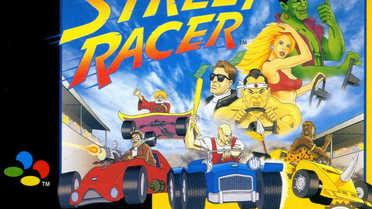 The key to this game was that it was offensive to everyone The key to this game was that it was offensive to everyone There is something to be said about the family road trip, and I’m here to say it. Without hesitation, I would call the experience incomparable. Even for those times when I was in the backseat, when my parents would drive us around British Columbia and down the west coast of the United States, and we would have our share of hiccups, to put it mildly, because some of us didn’t handle the stresses of travelling all too well, I look back on those experiences fondly. We weren’t the kind of family where sullen teenagers would sink into the backseat listening to their own music wishing they were anywhere else but in the family car. The family road trip was an adventure, the chance to experience something new together. It was one of the things I looked forward to the most when I would have my own kids. And this past week, I got to experience it. Last weekend was my first time behind the wheel of a family road trip, with my wife beside me, my two little boys in the backseat, and sandwiched between their two carseats, the hero of the whole endeavor, my mother-in-law, who insisted on helping us out by going with us instead of flying, and probably ended up saving my sanity. It had all the makings of a romanticized trip that I’ve always dreamed of. A 6 am wake-up call, packing the car in the brisk August morning, rolling the still-warm children out of bed and throwing them in the backseat. There was something that felt very right about it all, heading to the border through the bluish hues of morning with nothing but two thousand kilometers of road ahead of us. Sometimes you hype yourself up for your entire life only to disappoint yourself. Sometimes nostalgia transforms something in your head to the point that it is no longer recognizable in real life (plenty of my old Super Nintendo suffered this fate. “Hey wait a minute, this game is both terrible and not a little racist.”) But the magic of the road trip could not be understated. It was everything I was waiting for. Snacks being passed around to the point where kids had little appetite for lunch because they consisted 40% of Doritos. Toilet breaks were demanded in the nick-of-time before the “Next Area – 54 miles” signs. Taylor Swift and Hamilton filled in the gaps between local radio stations. Everything that I have listed so far I met with warmth and fondness. The family road trip has a bad wrap in media. Or at least that’s what my confirmation bias is telling me as I write this piece. Just look at National Lampoon’s Vacation, or its soft-reboot, Vacation, or even something more dramatic and high-brow like Little Miss Sunshine. Family trips are not whimsical adventures, they’re unmitigated disasters. And that’s unfair. It’s time to romanticize the road trip. And not the Jack Kerouac nightclub-fueled couch surfing bender through an existential crisis. But just one semi-functional family that enjoys the company of each other and a beautiful country. Two solid days of driving and when I looked at the world map hanging in the kids’ room after I got back, it was humbling seeing what a small blip of it we actually covered. Our world us unfathomably vast, with a myriad people living in it. How can one fail to surrender to such awe as hour after hour get piled on and the landscape changes. Temperate rainforests eventually yield to scrub, to the endless golden expanse of the San Joaquin Valley that is both gorgeous and dangerous with its hypnotizing powers. I spent four days on the road in total, through backaches and a nagging wrist injury that just refuses to quit. Yet somehow I feel energized and refreshed. My mind is more open to tackling work and my writing. I feel closer to my kids. I feel closer to my wife if that’s even possible after fifteen years together. I have a new appreciation for my mother-in-law whom I had already been appreciating.
All that said about this trip and I hadn’t even mentioned the destination, even though that was the whole point of this adventure. Something can be said about Disneyland as well, but that is a whole different story. We are a shameless Disney family so I can spew corporate propaganda until the cows come home. But this is about something else, about the overlooked journey to the destination. Now, I won’t double down on the cliché – that it’s about the journey and not the destination. That’s best left as a metaphor, especially when your destination is frickin’ Disneyland. But the journey itself should hold a separate place. Not as a trial, or as a bitter pill that needs to be swallowed before the reward, but as the reward itself. And I count myself lucky as someone who has people close to me to make the journey such a blast. I have this vague recollection that in a previous blog entry I vowed to update more frequently. Upon recent reflection, it would appear that I’m a shameless liar. Aaaaaaaaaanyway: In an earlier blog entry I shared with you my mild obsession with my bullet journal – something I use to log, track or otherwise organize various aspects of my life. Some of these trackers, like my words-per-day chart, are geared directly towards my writing. Others; however, have more general everyday application, like my exercise log. It’s because I’ve reached a very significant milestone in my tracking since I first started the practice at the end of 2016 that I wanted to share with you another one of my bullet journal entries. Hold onto your hats, folks, this one’s colourful: I would like to say the chart is self-explanatory but I’ve made that mistake in the past and I’m not about to do it again. Apparently not everybody can readily understand what’s in the mind of a madman. Each “block” of varying size appears underneath the label for its respective month. As you can see from the very depressing months of November and December 2017, it starts as a blank outlined square. Once I do an activity that constitutes exercise, I fill in one square.
There’s a legend at the bottom of the page that indicates the kinds of activities that make it in here. Some are fairly straight-forward, like running, swimming, and yoga. Others have some caveats. The biking one for instance, refers to actual hard-pedaling for distance (although I suppose calling my pedaling “hard” is being a bit generous). The 30+ minute walk usually refers either to a straight walk longer than 30 minutes, or a couple of intense walks at around 15-20 minutes each. Even if I ended up walking for hours that day, I still give myself only one light green square for that day, otherwise the light green would be too dominant here. The most flexible category here is “gym”. This has included everything from an actual trip to the gym, to a particularly intensive chore day, to a half-hour session of Beat Jedi on the VR. And if you laughed at that last one, how about you try swinging your arms for 30 minutes to the tune of “Gangnam Style” and then tell me it wasn’t a workout. So long story short, any time I exercise, I fill in one square on the chart, completing them in a sort of spiral pattern. To better see how the spiral works, look at the following months in succession: May 2017, March 2018, April 2018, December 2016, and so on. So in the end you end up with a log that not only allows you to see the types of activity you’ve been doing, but also the relative volume of said activity month over month. I like this particular chart also because of how much time is captured in a single 2-page spread. Here we see 21 months worth of exercise, and as you can see, much can change over that time. Early on in the process, there was a lot of running and swimming, and generally I was pretty active. Then it all kind of fell away for over a year (and there’s reason for that, if you feel like reading up on it). Running was replaced by biking due to another in a string of running injuries, and swimming never went back on the table because I switched jobs and no longer had a YMCA within walking distance of my office. I guess the other couple of things to note is the brief appearance of Yoga, which had to be put on hold due to lingering wrist sprain, and the last ice hockey game I’ve played so far, owing mostly to a busy life with two kids and the rink being a half-hour drive away. But hey, I scored two goals in that game, and was apparently dubbed the “Winter Soldier” by the team captain. And if there’s one thing I love collecting, it’s badass nicknames (it’s a very small collection). Then after hitting rock bottom late last year, and then slowly getting out and walking in the spring, I finally turned things around, and had my most active months yet. This culminated in the most recent month where I set another record for having times I’ve exercised that month. Some of you may not see this as a particularly big deal, but between my work and my hobbies, I’ve never been the most active person. A lot of this takes effort for me. Exercise has to be squeezed in before work so most of the time I’m up at 6 am to get this done. Walks are fit in at lunchtime, and thank goodness for Pokemon Go to help me get out of the office for a bit of fresh air. And I think having this tracker helps as well. Not only does it add that one extra piece of motivation – being able to go home and fill out another square, but it also allows me to see how far I’ve come, and how much I’ve overcome. No matter what life throws at me, whether family tragedies, or injuries, or change in jobs, no matter how much I falter, I end up picking it all up and not abandoning my overall fitness goals. And I think this one of the important things to accept about life, sometimes goals don’t arrive in the way you expect them to come. Sometimes there will be a drought. And this relates to writing as well. Whether a string of rejections or a prolonged case of writer’s block, life is a marathon and not a sprint. There will be ups and there will be downs and when you’re in a down it’s important to recognize it for what it is – temporary. |
Michael SerebriakovMichael is a husband, father of three, lawyer, writer, and looking for that first big leap into publishing. All opinions are author's own. StoriesUrsa Major Categories
All
Archives
January 2024
|
Proudly powered by Weebly
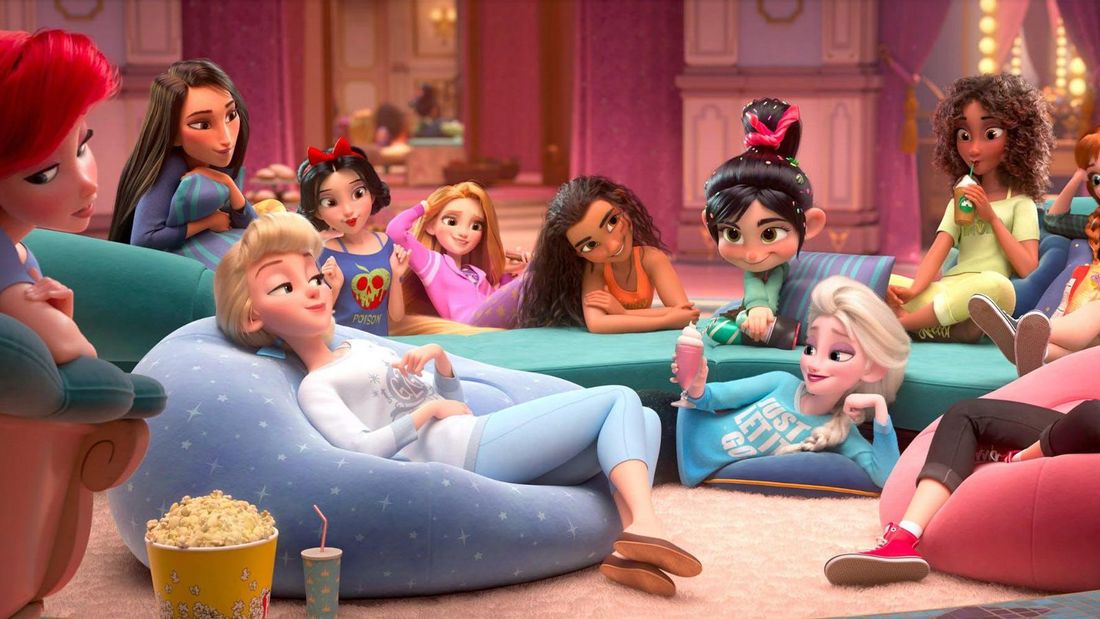
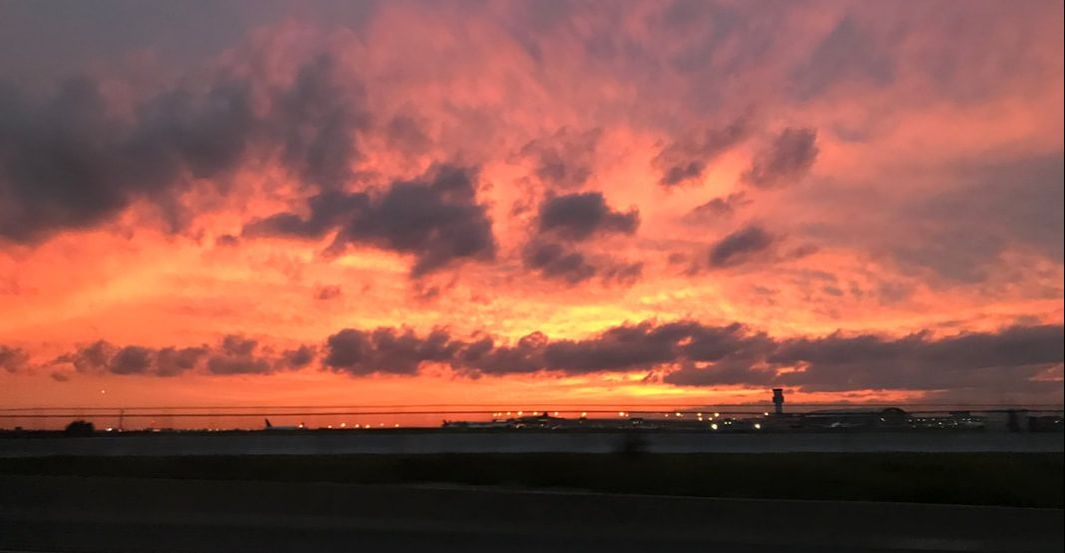

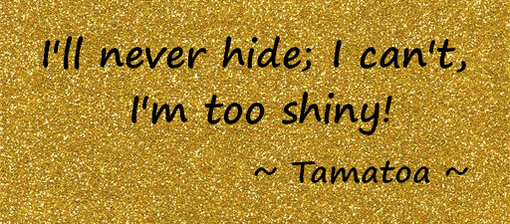
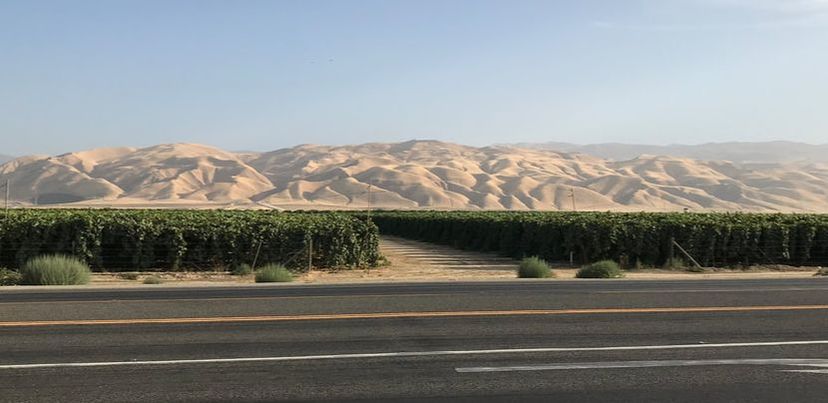
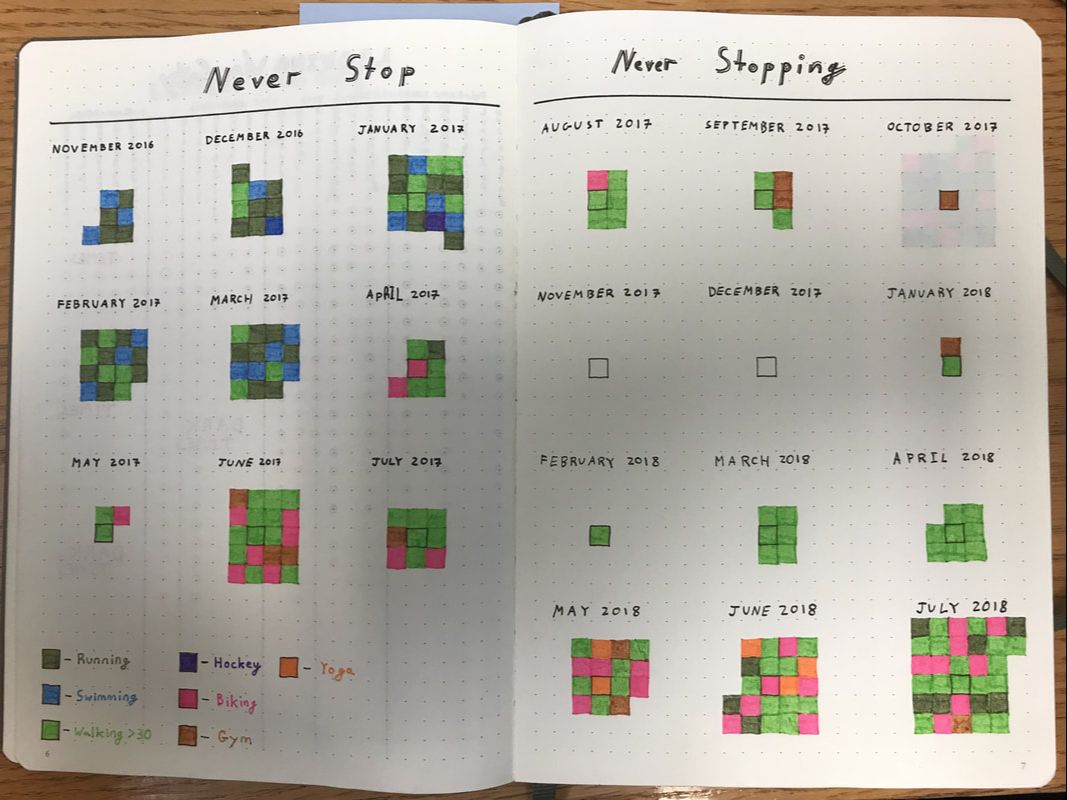
 RSS Feed
RSS Feed